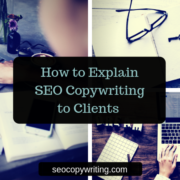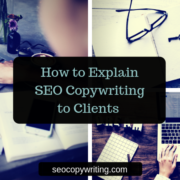Queen of Link: Interview with Debra Mastaler
 Today we are honored to feature our interview with link-building expert, Debra Mastaler.
Today we are honored to feature our interview with link-building expert, Debra Mastaler.
In business since 2000, Debra shares some of the expertise she’s gained from executing hundreds of link building campaigns with us! Enjoy, as Debra gives her candid take on link marketing – how it’s evolved and where it stands today.
Please share a bit of your background with us: When did you start in SEO? What led you to specialize in linking? (or is it “link building”?)
I’ve always referred to it as link marketing because of the way I work, but most people call it link building.
In 2000 I launched a directory featuring organic food and clothing. It was a small site with about 200 products and a page for organic news.
I was new to the Internet and web design so the directory didn’t look like much but it was packed with great information. I marketed the site by emailing business owners selling organic products and asking them to feature the directory on their sites.
After a couple months I noticed I was ranking in the first three spots on almost every engine I used. I was happy but clueless as to why. When the business owners listed in my directory started asking me to help them rank, I knew I needed help and went looking online for information on internet marketing.
That’s when I found the old Rank Write newsletter Heather Lloyd-Martin and Jill Whalen used to publish. I read several editions and figured out what I was doing.
I ended up working for Jill for a while to hone my linking skills, and once I felt confident to offer link building as a stand-alone service, I launched Alliance-Link.
Prior to 2000, I spent 15 years in the marketing department of Anheuser-Busch and four years before that working for Uncle Sam as a civil servant in the Officers’ Club system. Both positions gave me a solid marketing education and directly influence the way I work today.
In your opinion, how has the linking-building “landscape” changed over the years’ you’ve been involved in SEO?
You know I’ve been asked this question frequently over the years and I’ve never changed my answer… what I do has not changed but where I do it, has. I’ve always secured links by developing promotions, distributing content or working with the media; since they are core marketing functions it doesn’t matter what the algorithm – that stuff works regardless.
There are many different types of link builders: some people use mass submission tools or pay for links, others send request letters, or use private networks, etc. It’s all good and it all works, which is why I use a little of each when I build links.
No matter how you work, there are definitely more opportunities now. That’s a big change from when I started. Back in the day, there were no blogs, no Facebook, no YouTube, no Twitter. When blogging went mainstream and the social media sites took off, opportunity exploded with it. New sites bring new links and traffic streams, both gold for a linker.
What are the major challenges of link building now, given the search and social merger?
For me the biggest challenge has been keeping up with what’s new. I have to spend more time now than ever before reading, surfing and listening for new opportunities, new sites and new social media trends so I can be an early adopter. Sometimes, it’s just about being first.
What would you say has had the most dramatic impact on link building over the past year or so?
I believe two things have dramatically impacted linking and that’s the implementation of Universal search and the preference engines, especially Google, have given brands in the search results.
I didn’t include Panda because little of what we monitor was impacted and when it was, we found work-arounds so our sites have rebounded.
Unfortunately I don’t always have an easy time working around Universal search results and that can be uber frustrating.
Trying to find a non-brand, “regular” text listing can be a challenge: there’s far less room for them in the top ten since they are sharing space with sponsored ads, shopping, video, news, local, images, and product search. These are space hogs as the visual elements take twice the space as a text listing.
And then there are the brands, plus sites like Wikipedia and About.com. While easier to work around, the brand’s presence can sometimes be puzzling. The search engines harp on providing good content, user experience and quality linking, yet most brand pages in the search results are little more than product listings.
Here’s an example: when I search on the phrase “fresh water fishtanks”, my second result is from a national brand. I have to really hunt for the on-page fish tank information and two annoying pop-ups that hit me when I land.
I find no inbound links to this page so I have to assume it is pulling link pop from the domain. So I wonder, where’s the good content, quality user experience and inbound links we’re told are needed to rank well? Do those criteria vanish because the page is a brand? Seems so, otherwise the well-optimized independent site should rank first and second – but they don’t.
You mentioned it was easier to work around brands, About.com and Wikipedia: how do you build links in such competitive areas?
Universal elements (Google news, shopping, etc.) use different algorithmic factors to determine search results, whereas brands and Wikipedia use algorithmic elements we’re more familiar with.
Things like link popularity, content, and social signals (supposedly) are used to rank and display pages. Dissecting back link profiles around sites like Wikipedia is smart – you find media and content sources in addition to sites that you can either get a link from or get a comparable link.
Earlier I said “sometimes it’s about being first.” Well, sometimes it’s also about having more :)
About Debra Mastaler
Based in Fairfax Station, Virginia, Debra Mastaler is President of Alliance-Link, an interactive marketing company focused on providing link building training and consultations.
Debra was voted one of the Top SEO Women of 2011 and recently was named one of Search Marketing Standard Magazine’s “Women of Internet Marketing.” You can get more link marketing wit and wisdom from Debra at her blog, linkspiel, and you can find her on Twitter via @debramastaler.



Excellent interview…Honestly, anytime we have a large link building campaign, Debra is always the first person that comes to mind! How can you not trust someone that encompasses all tools out there. “It’s all good and it all works, which is why I use a little of each when I build links.” Ego in the back seat & the work is done!
Thanks, Gabriella! Debra is incredible in her dedication to whatever works, sans her signature. Clearly, Debra just gets it done, much to the satisfaction of her clients and much to the credence of her work!
Great interview. Thanks for the helpful information, Debra.
Could you share some work-arounds that help you rebound from Panda? I lost a good amount of traffic because of Panda and I can’t figure out how to get my rankings back. Thanks!
Thanks Gabs, I always appreciate your support and kind words, you are a true friend :)
@Dee, you’re welcome. There isn’t an exact formula to follow, each site is different but we’ve found changes happen if you focus on a couple of key issues:
1. If your content reads like a fourth grader wrote it, and/or is filled with advertisements, changing this helps.Provide solid information that responds to a keyword query be sure the verbiage is spelled correctly and exceeds images, ads and whatever else is on the page.
2. Whether it’s on or offline, you are known by the company you keep. If you are getting a lot of links from crappy, low-grade sites, you are not helping yourself climb out of a Panda hole. Chances are those sites also got themselves in trouble, who needs to be associated with that? Focus on new, fresh and strong links from sites who did not experience a slap from Panda.
Thanks for the response!